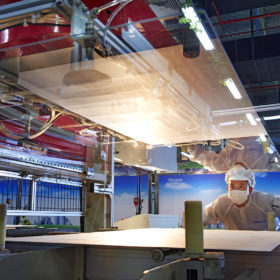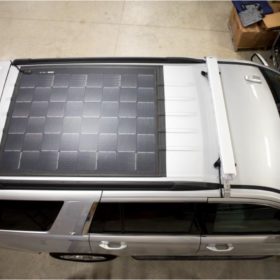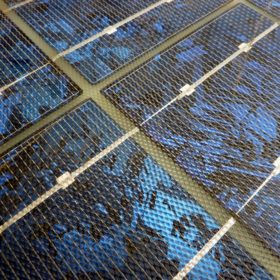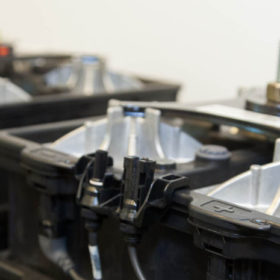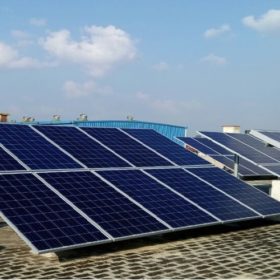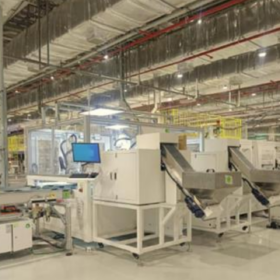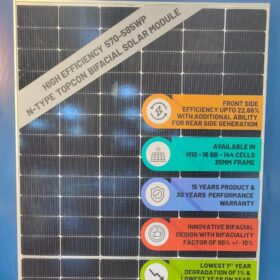Azure Power commissioned over 500 MW of solar power projects in FY19
The independent solar power producer commissioned over 250 MW in the current quarter alone, which is among the highest installations by a company in this period. With this, its total operational portfolio in India is now over 1,400 MW.
Norway to install wireless charging system for taxis at stands
Finnish clean-energy company Fortum, in cooperation with US-based inductive charging specialist Momentum Dynamics, will install induction-based infrastructure to allow for wireless charging up to 75 kilowatts.
Economies of scale, a silver lining for solar – Waaree Energies Interview
Mumbai-based Waaree Energies has solar PV module manufacturing capacity of 1.5 GW—claimed to be the largest in India. At a time when the company is expanding to newer markets with customized solar modules for electric vehicles, Sunil Rathi, Director, Waaree Energies spoke to pv magazine about manufacturing in the current duty regime.
Trina Solar rolls out four new series of modules
The high efficiency series can be used in multiple application scenarios like utility-scale ground-mount and distributed PV projects. An increase in the output of modules from 370W to 415W will help reduce the balance-of-system cost by 4.5% to 8.5%, and reduce levelized cost of electricity (LCoE) by 2.5% to 4.6%.
EXIM Bank to finance 35 MW solar projects in Congo
The Democratic Republic of the Congo will use the amount for installation of three solar PV power projects with a total capacity of 35 MW in the three provinces of Karawa, Mbandaka and Lusambo.
Waaree Energies introduces customized solar modules for electric vehicles
Designed to be portable and flexible, the modules are ideal for electric vehicles to support energy requirements of auxiliary functions like refrigeration—increasing the efficiency by 10-15%.
Amtronics pays initial license fee to use QMC’s quantum dot technology for thin-film solar cells
Amtronics CC has paid U.S. firm Quantum Materials Corp an initial $500,000 as part of an agreement securing the right to manufacture quantum dots and thin-film quantum dot solar cells based on QMC technology for commercial supply in India. Construction has already started on a manufacturing facility in Assam, which will produce solar cells via a continuous, rapid-feed, flexographic-based printing process.
Tata Chemicals signs MoU for ISRO’s lithium-ion cell technology
Under this MoU, Indian Space Research Organisation (ISRO) would transfer the technology to Tata Chemicals so that it may manufacture lithium-ion cells of varying capacity, size, energy density and power density—catering to a wide spectrum of power storage requirements.
ADB to invest $50 million in solar project developer Avaada
With the current equity investment, Avaada—which has secured power purchase agreements of about 1,700 MW—is well funded to exceed capacity of 2 GW.
Rooftop solar for Delhi schools to save 4 GW electricity daily
State-run utility Indraprastha Power Generation Company Limited will install solar rooftop plants at 30 school buildings, with capacity of one megawatt in all.




